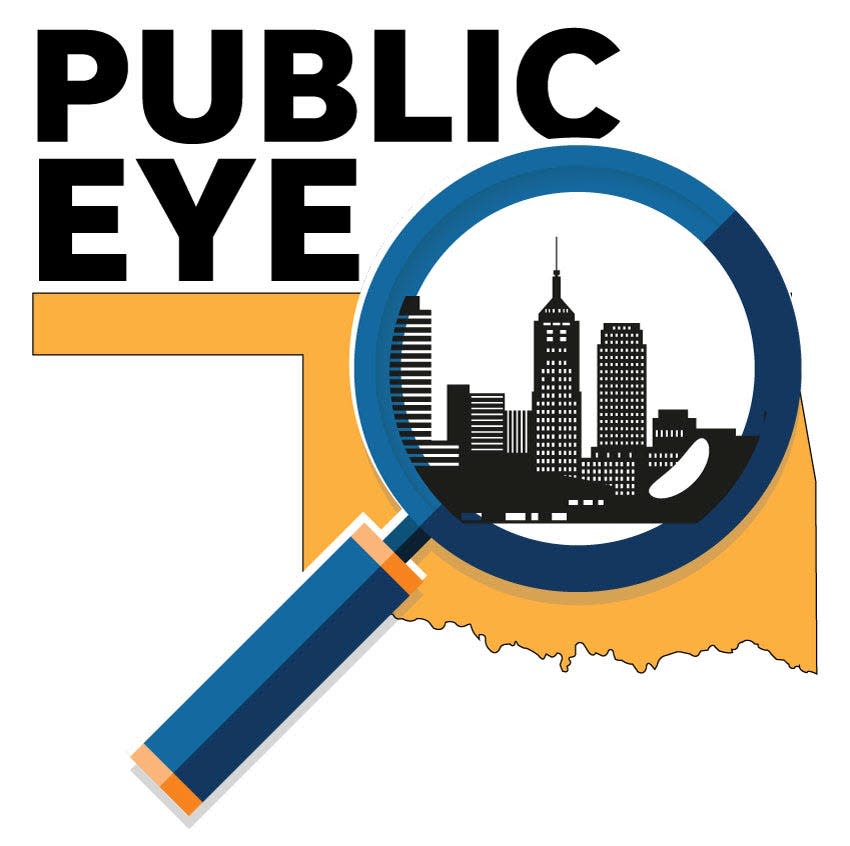Can voters fire an elected official in Oklahoma? Public Eye found three possible routes

Oklahoma is no stranger to political controversy and calls to remove officials from their jobs.
Elected officials sometimes do bad things. One of them could be engaging in criminal activity, showing gross incompetence or simply failing to do their job. Occasionally, their offense is so serious that the political discussion eventually settles on one question: Should they be removed?
In August, for example, Democrats called for state schools Superintendent Ryan Walters to be impeached. Then last month, Oklahoma's chief justice recommended the removal of a district judge accused of texting and behaving unprofessionally during a murder trial.
As we speak, a recall effort is underway in Enid to remove a city commissioner accused of having ties to a white supremacist group. More on that below.
So Public Eye looked into the process. Can voters un-vote a public official in some way?
The problem: How do you remove someone from public office?
There are different ways an official can be removed from office, depending on the level of government and type of office.
In some cases, removal requires legislative action at the state Capitol.
However, district court judges who are chosen in local elections can be removed from office by a special court, the Oklahoma Court on the Judiciary, which was created decades ago after a bribery scandal involving Supreme Court justices. This court's responsibility is to hear complaints about judges and to decide upon discipline and removal of judges in the state.

At the ballot box
The ultimate method of removing a politician is by electing their replacement in the next election.
Depending on how long their term lasts, however, it could be years before voters have a chance at removing them during the regular election cycle. That's one reason why other laws were created to kick office holders out before the expiration of their terms.
Impeachment
Everyone elected to state government, including the governor and other executive branch officials, legislators and justices of the Oklahoma Supreme Court can be impeached.
State law outlines five reasons why someone can be impeached:
Willful neglect of duty
Corruption in office
Habitual drunkenness
Incompetency
Any offense involving moral turpitude committed while in office
Impeachment proceedings are conducted in Oklahoma much like they are at the national level. The state House of Representatives starts the process by passing an impeachment petition by a majority vote. Then the state Senate holds a trial, hearing statements from both sides. If two-thirds of the senators agree with the charges, the official is found guilty and removed from office.
There have been no impeachments in recent history, but in 1923, Gov. Jack Walton was impeached and removed from office after declaring martial law to combat the threat of the Ku Klux Klan. He was convicted and ousted from office by the Senate on 11 counts, which also included allegations of misuse of clemency powers and illegal solicitation of funds.
The recall route
According to the National Conference of State Legislatures, 20 states allow recall elections for state officials. Oklahoma, however, is not one of them. State legislators, therefore, cannot be recalled. Neither can any of Oklahoma's 11 officials selected by a statewide vote. These officials include the governor, lieutenant governor, attorney general, treasurer, superintendent of public instruction, state auditor and inspector, labor commissioner, insurance commissioner and three corporation commissioners.
You also can't recall county officers or members of locally elected school boards.
However, the right to recall local officials does exist in some municipalities that are governed by a home-rule charter. Some of those include Oklahoma City, Norman and Tulsa.
Each city will have their own requirements for how to conduct a recall. In Oklahoma City, any elected officer can be removed in a recall election after six months in their position. At least 35% of their electorate must sign a petition to trigger a new election.
According to the election tracking website Ballotpedia, there have been about two dozen local recall attempts in Oklahoma since 2009.
More: Public Eye investigates issues that impact you. This is what we've found so far
Reaching the breaking point
Unlike other removals from office that resemble a trial, recall elections are more political in nature.
Enid is one of those cities that allows for recall elections. Political adversaries of former city commissioner Ben Ezzell filed a recall petition against him in 2020 in response to his support of regulations to stop the spread of the COVID-19 pandemic.
The recall effort failed. Ezzell was already nearing the end of his final term, and he successfully challenged his opponents in court over errors in their petition.
Even though he was the target of a recall attempt, Ezzell said he understands the value it brings to democracy when voters have the ability to remove an official "for cause."
"The recall effort that was taken against me was not for cause," he told Public Eye. "It was basically on the basis that I didn't represent the majority of the community — and by the way, I think that wasn't correct. I think it was just a very, very noisy, but small minority who didn't like me."
The recall mechanism is valuable enough that Ezzell and other Enid residents are organizing their own recall effort against a city commissioner who was elected this year. According to reporting by the Enid News & Eagle, the group trying to oust Commissioner Judd Blevins accuse him of ties to the white nationalist group Identity Evropa and his participation as a torch-bearer during the 2017 Charlottesville Unite the Right rally.
"Well, he's a white supremacist and having somebody like that in elected office is just abhorrent," Ezzell said. "That feels like a great reason to recall somebody. If you are a literal Nazi, you should be subject to recall."
Public Eye reached out to Blevins, who declined to address his alleged ties to neo-Nazi groups but provided this statement:
"These allegations were made long ago, and they were addressed during the campaign. The voters of Ward 1 settled this issue. They elected me because they believed I was the best candidate who shared their values, their concerns, and their hopes for the future of Enid," Blevins told Public Eye. "Regrettably, this fringe group, with the help of local and state media outlets, has chosen to continue a smear campaign against me rather than simply accept the results of an election."
Have a problem with slow bureaucracy or a sketchy business? Is there an important question about your community that needs to be answered? Let Public Eye help. Email us at publiceye@oklahoman.com.
This article originally appeared on Oklahoman: How do you remove an elected official in Oklahoma? There are 3 methods

